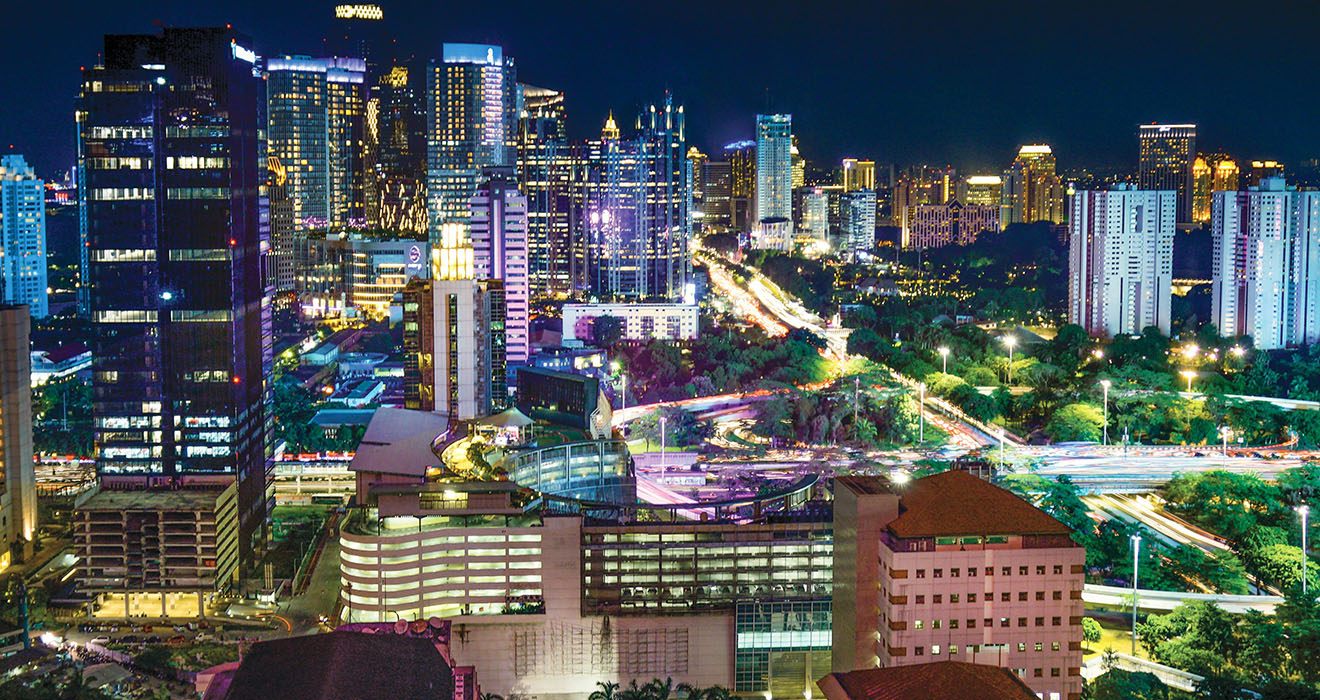Jakarta
Discover the vibrant capital of Indonesia
About Jakarta
Jakarta, the bustling capital of Indonesia, is a melting pot of cultures, offering a rich tapestry of history, modernity, and diverse experiences. From its iconic landmarks to its vibrant culinary scene and dynamic nightlife, Jakarta has something for every traveler.

Photo by Bayu Syaits on Unsplash
Getting There and Around
Arrival
Airports: Soekarno-Hatta International Airport is the main gateway to Jakarta, located approximately 20 kilometers west of the city center. Halim Perdanakusuma Airport also serves domestic flights.
Train Stations: Gambir and Pasar Senen are the primary train stations in Jakarta, connecting the city to various destinations across Java.
Bus Terminals: Kampung Rambutan and Pulogadung are major bus terminals providing intercity and intracity bus services.
Transportation
Public Transport Options: Jakarta offers an extensive public transportation network, including buses, commuter trains, and the TransJakarta Bus Rapid Transit system. Taxis and ride-hailing services are also widely available.
Car Rentals: Car rental services are available at the airports and within the city, but traffic congestion should be considered before opting for self-driving.
Bike Shares: Bike-sharing programs are gaining popularity in certain areas of Jakarta, providing an eco-friendly way to explore the city.
Tips: Traffic congestion is common in Jakarta, especially during peak hours. It's advisable to plan travel times accordingly and use alternative transportation options when possible.
Accommodations
Overview: Jakarta offers a wide range of accommodations, from luxury hotels to budget-friendly guesthouses and hostels.
Types of Accommodations: Travelers can choose from international hotel chains, boutique hotels, serviced apartments, and traditional Indonesian-style accommodations.
Booking Tips: It's recommended to book accommodations in advance, especially during peak tourist seasons. Online booking platforms offer a convenient way to compare options and secure the best deals.
Local Regulations and Safety: Ensure that accommodations comply with local safety regulations and have necessary facilities for a comfortable stay.
Accessibility: Many accommodations in Jakarta provide accessible facilities for guests with disabilities or special needs.
Central Business District
The CBD offers upscale hotels, business-oriented accommodations, and easy access to shopping and dining.
Old Town (Kota Tua)
Kota Tua features charming heritage hotels and guesthouses, surrounded by historical landmarks and cultural attractions.
South Jakarta
This area boasts a mix of luxury hotels, trendy boutique accommodations, and proximity to entertainment and nightlife venues.
Menteng
Menteng is known for its elegant colonial-era residences turned into stylish boutique hotels and bed-and-breakfast establishments.
Kemang
Kemang offers a bohemian atmosphere with eclectic accommodations, art galleries, and a lively dining scene.
Attractions and Activities
National Monument (Monas)
A symbol of Indonesian independence, offering panoramic views of the city from its observation deck.
Taman Mini Indonesia Indah
A cultural park showcasing Indonesia's diverse heritage through traditional houses, museums, and recreational activities.
Istiqlal Mosque
One of the largest mosques in Southeast Asia, known for its stunning architecture and religious significance.
Ancol Dreamland
An integrated resort featuring theme parks, beaches, and entertainment options for families and thrill-seekers.
Jakarta Old Town (Kota Tua)
A historical district with well-preserved colonial buildings, museums, and street performances.
Dining and Nightlife
Culinary Scene
Jakarta's culinary scene is a fusion of flavors, offering diverse cuisines from traditional Indonesian dishes to international gastronomic experiences.
Menteng
Known for its upscale restaurants, trendy cafes, and a mix of international and fusion cuisines.
Kemang
A hub for dining and nightlife, featuring a variety of eateries, bars, and live music venues.
PIK (Pantai Indah Kapuk)
A waterfront district offering seafood restaurants, coffee shops, and vibrant nightspots along the coast.
Senopati
A culinary hotspot with chic bistros, fine dining establishments, and a lively atmosphere for food enthusiasts.
Old Town (Kota Tua)
Historical cafes, street food stalls, and traditional eateries serving authentic Betawi and Indonesian specialties.
Festivals and Events
Jakarta International Java Jazz Festival
An annual music festival featuring world-renowned jazz artists and diverse musical performances.
Jakarta Great Sale
A citywide shopping extravaganza offering discounts, promotions, and special events across Jakarta's retail outlets.
Jakarta Fashion Week
A showcase of Indonesian and international fashion designers, runway shows, and industry-related events.
Jakarta International Film Festival (JiFFest)
A celebration of cinema, screening independent films, documentaries, and engaging with film industry professionals.
Jakarta Culinary Feastival
A culinary event highlighting gourmet experiences, cooking demonstrations, and interactive workshops with renowned chefs.
Practical Information
Safety Tips
Exercise caution in crowded areas, beware of pickpocketing, and adhere to local laws and customs for a safe and enjoyable visit.
Healthcare
Pharmacies: Pharmacies and drugstores are readily available throughout Jakarta, offering a range of medications and healthcare products.
Hospitals: Jakarta has modern medical facilities and hospitals providing emergency care, specialized treatments, and multilingual staff.
Emergency Services: In case of emergencies, dial 119 for ambulance services and seek assistance from local authorities or your accommodation.
Currency and Payment
Local Currency: The official currency is the Indonesian Rupiah (IDR). ATMs and currency exchange services are widely accessible in Jakarta.
Tipping Customs: Tipping is not mandatory in Indonesia, but it is appreciated for exceptional service in restaurants, hotels, and tour guides.
Payment Methods Accepted: Major credit cards are accepted in upscale establishments, while cash is preferred for smaller vendors and local markets.
Connectivity
Mobile Networks: Local mobile operators offer prepaid SIM cards with data and call packages, providing reliable connectivity throughout Jakarta.
SIM Cards: Purchase SIM cards from authorized retailers and ensure they are registered to comply with local regulations.
WiFi: Many hotels, restaurants, and public spaces in Jakarta offer free Wi-Fi access for visitors to stay connected during their stay.
Local Customs and Etiquette
Culture Insights
Indonesian culture values harmony, respect, and communal relationships, with a strong emphasis on family and social connections.
Greetings
Common greetings include a handshake and a slight bow, with a warm smile and polite demeanor. Address elders and authority figures with deference.
Social Behavior
Maintain modest behavior in public, avoid confrontations, and show consideration for others' feelings and opinions.
Cultural Taboos
Avoid pointing with your feet, touching someone's head, or using your left hand for gestures or interactions.